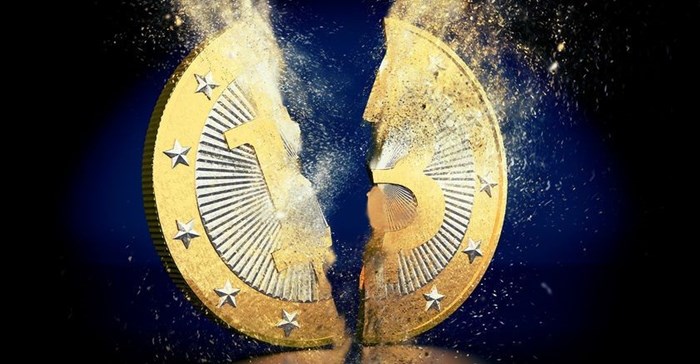
Top stories






More news





ESG & Sustainability
#Sona2026: President announces crisis committee to tackle SA's water challenges









Traditional investors have sounded alarm bells, citing concerns about the lack of regulation and describing it as another asset bubble.
“For a system of currency to be worth anything, people need to believe in it – and at present there is no shortage of belief in so-called ‘cryptocurrencies’,” says Andrew Williams, investment specialist, Schroder ISF Global Recovery Fund.
“Bitcoin may be the one most people will have heard of but there are now around 100 cryptocurrencies in existence and, earlier this month, their combined worth surpassed $100bn for the first time. On 1 April 2017, by way of context, they were worth a quarter of that.”
While many investors argue that this ‘digital asset class’ is only just getting started, there is a strong sentiment that all signs point to a bubble that will imminently burst.
Williams explains that cryptocurrencies are digital currencies built on the sophisticated and decentralised blockchain technology. “Thanks, among other things, to their perceived security and independence from nation states and central banks, the values of trailblazer bitcoin and more recent offerings such as Ethereum and Ripple – between them, the trio make up about four-fifths of the market – have been rocketing upwards,” he says.
According to Williams, some of the numbers surrounding Bitcoin are extraordinary. He provides the following example: “If you had bought $1,000 of the currency in 2010, it would now be worth around $35m. The early peak came in late 2013 when one Bitcoin was worth $1,100, but the currency then crashed to less than a fifth of that not much more than a year later. Since then, it has zigzagged its way up to within touching distance of the $3,000 mark.”
Between the planning of this piece and actually sitting down to write it, it seemed as if the cryptocurrency bubble had indeed burst. “Sticking with bitcoin as our proxy for the market, after peaking at $2,941 on 11 June, the currency fell some 20% to below $2,200 on 15 June … from which point it gained more than 15% to head past $2,600 on 18 June,” explains Williams.
Williams cautions that by the time this article is printed, that number could be wildly different. “This is testament to the fact that things move pretty fast in the world of the cryptocurrency – but you can certainly see why there have been rumours in terms of ‘bubbles’,” he says.
“However it turns out, though, the language being used about cryptocurrencies – and the associated market reaction – is certainly reminiscent of the dotcom boom and bust at the turn of the century.”
Williams points out that over the last two decades or so, a few internet-related stocks have lived up to and even surpassed that excitement but a far greater number have not. “Whether it was the internet back then or cryptocurrencies now, the arguments involve technologies that are not widely understood but nevertheless whip up great excitement among investors because of their huge potential and ramifications for how we interact with the world,” he says.
Williams cautions that one major problem investors faced with dotcom stocks related to valuation, and arguably they face to an even greater degree the same issue with cryptocurrencies. “If cryptocurrencies were stocks, investors might at least have a chance of getting to grips with their balance sheets and working out what they were really worth,” he says, “but, as it stands, there is simply no metaphorical bonnet to open up and check underneath.”
Williams goes on to say that the only real point of comparison for bitcoin, ethereum, ripple and the rest are traditional currencies, is that every money system is a man-made construct that is dependant for its very existence on an act of faith. The same goes for gold, two ounces of which can now be bought for a single bitcoin.
“Recent price movements mean the jury is still out on whether cryptocurrencies are a potential bubble,” says Williams. “What seems more certain, however, is the sort of behaviour we are currently witnessing in much of the market is herd-like and short-termist in nature and thus more akin to speculation than investment.”